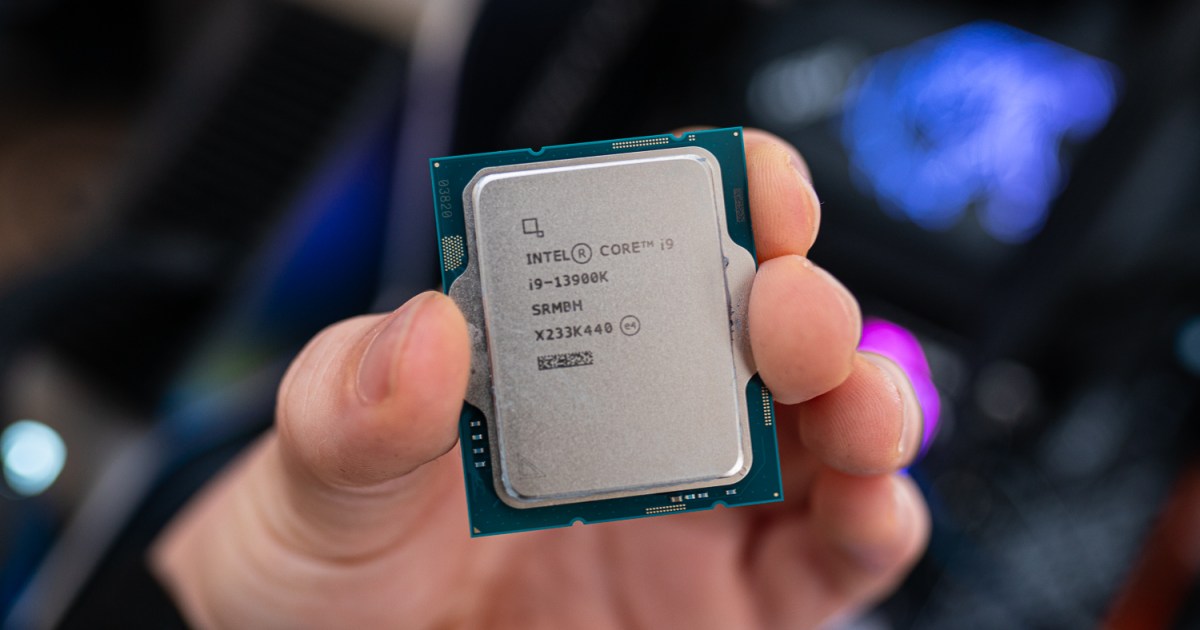Intel might get slapped with a class-action lawsuit
Intel's instability problem is only getting more pronounced, with a law firm now investigating a potential class-action lawsuit.

 Jacob Roach / Digital Trends
Jacob Roach / Digital Trends
The calls for a class-action lawsuit in response to Intel’s instability issues with 13th-gen and 14th-gen CPUs are turning into action. The law firm of Abington Cole + Ellery has launched an investigation into a potential class-action lawsuit against Intel, and it has a form on its website for users to submit details if they believe they’re an affected party.
The law firm hasn’t provided any details on what the class action might entail, but the form asks customers if they’ve purchased an affected processor or a PC containing one of the affected processors, as well as if they’ve experienced issues. About a day after posting, the form is currently sitting on top of the r/Intel subreddit, right above a megathread where Intel users can report if they’ve experienced any instability issues. A user claiming to be a class-action lawyer asked if Intel is honoring return requests, and most responses claim the company is.
Abington Cole and Ellery specializes in class action and intellectual property law, and the firm won a settlement against T-Mobile in 2021 related to a data breach. The law firm has launched dozens of investigations in the past, mostly related to data breaches.
As we learned when speaking to users impacted by the instability of Intel’s 13th-gen and 14th-gen CPUs, the problem is widespread. We’ve also heard sparse reports that Intel has denied return requests in some cases, which could play a critical role if this class-action lawsuit gets off the ground.
We’ve sent Intel a list of questions about its instability problem and have yet to receive answers to all of our concerns. The company has said it will fully support customers impacted by a manufacturing error in the exchange process, but it hasn’t committed to refunding users impacted by instability issues. It also has said it won’t recall the CPUs. In addition, Intel hasn’t commented on if it will honor returns on processors that are permanently damaged.
Although we don’t know exactly what’s going on with Intel’s CPUs, we have a lot of clues. Intel itself says that the problem could affect a wide range of CPUs. “Intel Core 13th and 14th Generation desktop processors with 65W or higher base power – including K/KF/KS and 65W non-K variants – could be affected by the elevated voltages issue. However, this does not mean the listed desktop processors are inevitably impacted by the issue,” Intel told Digital Trends.
Intel believes the source of the problem comes down to the microcode in the CPUs requesting too high of a voltage. The company says it will deliver a microcode update in mid-August. Although that could address some of the issues with Intel’s current batch of CPUs, the company describes the update as a “preventative measure” and hasn’t said if it will fix instability issues on CPUs that have already degraded.
It’s hard to know the scale of the issue, but Level1Techs estimates that the number of impacted chips could be as high as 50% of all 13th-gen and 14th-gen CPUs in circulation. Elevated operating voltages can cause a CPU to degrade rapidly. With millions of CPUs degrading at different rates, it’s hard to pin down exactly how widespread the issue is. If you have a 13th-gen or 14th-gen CPU, we recommend running through Robeytech’s benchmark process to see if your CPU crashes.
Although the situation with Intel’s CPUs is only heating up, it’s important to understand that this isn’t a lawsuit yet. This is an investigation into a potential class-action lawsuit. If it gets off the ground, we’ll keep you updated.
Jacob Roach is the lead reporter for PC hardware at Digital Trends. In addition to covering the latest PC components, from…
AMD’s new Ryzen 9000 CPU gets beaten by an unexpected rival
AMD's new Ryzen 9000 CPUs are releasing in a little over a week, and the first review has already been posted. SaddyTech posted a video taking a look at the 12-core Ryzen 9 9900X in a slate of games, and there's some bad news for AMD. Across titles, last generation's Ryzen 7 7800X3D is faster.
There are minor differences in some games, but others show a massive lead for AMD's last-gen CPU. In Alan Wake 2 at 1080p, for example, the Ryzen 7 7800X3D and Ryzen 9 9900X are within two frames of each other. However, in The Last of Us Part One, SaddyTech showed that the Ryzen 7 7800X3D is 18% ahead at 1080p. And in Fornite, it's 16% ahead.
Intel breaks silence on disastrous instability problem
Intel has finally provided an update on instability issues on 13th-gen and 14th-gen CPUs. An update posted by Thomas Hannaford, Intel's communications manager, pins the instability on an error in the microcode that requests incorrect voltage numbers, leading to instability in the processor.
The company is releasing a microcode patch that "addresses the root cause of exposure to elevated voltages." Intel says that update should arrive in mid-August. In the meantime, Intel encourages users who are experiencing instability issues to reach out to its support team for assistance. The microcode error was discovered after Intel reviewed processors that were returned due to stability issues, suggesting Intel wants to make the situation right with affected users -- though it stopped short of apologizing for a months-long drought on communication on the matter.
Is your Intel CPU crashing? Here’s how to RMA an Intel CPU
If your Intel CPU is acting up, rest easy -- it's not just you. In fact, the owners of some of Intel's best processors have been going through a rough time lately -- and that even includes game developers. The Core i9-14900K and the Core i9-13900K have been crashing for months now, and even though Intel has been quiet on the matter, you may be able to get your CPU replaced if it's an ongoing problem.
Whether you own a recent Intel CPU or an older model is performing poorly, you can turn to a process called return merchandise authorization (RMA) to try to return the defective processor. Here's how to RMA your Intel CPU.
Start with the retailer

 AbJimroe
AbJimroe 




































